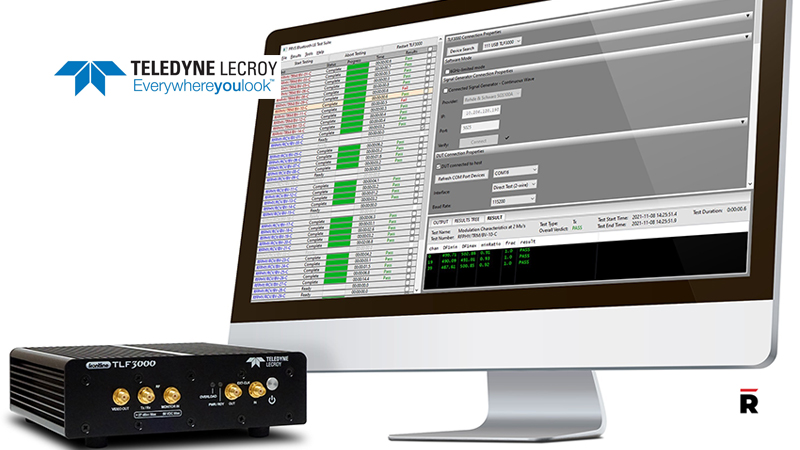New Bluetooth® capability to deliver life-changing audio experiences
The Bluetooth Special Interest Group (SIG), the trade association that oversees Bluetooth® technology, announced a new consumer brand for an upcoming audio broadcasting capability based on Bluetooth technology. This new capability, previously known as Audio Sharing, is now Auracast™ broadcast audio. Auracast™ broadcast audio enables an audio transmitter, such as a smartphone, laptop, television, or public address system to broadcast audio to an unlimited number of nearby Bluetooth audio receivers, including speakers, earbuds, or hearing devices.
“Auracast™ broadcast audio is well positioned to become an advanced, new assistive listening system that will be significantly easier and lower cost to deploy while offering higher audio quality and greater privacy, improving audio accessibility and promoting better living through better hearing.”
“The impact of Bluetooth audio has been massive. A simple, wireless audio connection between two Bluetooth devices has helped make our roads safer, our lives more productive, and our relationship with music, podcasts, video streaming, and all types of personal audio more convenient and joyful,” said Mark Powell, CEO of the Bluetooth SIG. “The launch of Auracast™ broadcast audio will trigger another massive change in the wireless audio market. The ability to broadcast and share audio using Bluetooth technology will reshape personal audio and enable public venues and spaces to deliver audio experiences that will improve visitor satisfaction and increase accessibility.”
“Bluetooth technology is extending its track record of innovation with the launch of Auracast™ broadcast audio,” said Peter Liu, System Architect, Pixel Ecosystem Products at Google. “We are proud to work with the Bluetooth SIG and are excited to see this capability provide consumers with new, imaginative ways to connect with each other and hear their world.”
Also Read: Social Media Monitoring: Meaning, Importance, Functioning, and Pricing
Auracast™ broadcast audio will deliver life-changing audio experiences that will enhance the way we engage with others and the world around us. We will be able to:
Share Our Audio: Auracast™ broadcast audio will let us invite others to share in our audio experience, helping bring us closer together. When using wireless earbuds to listen to a song or movie playing on a smartphone, tablet, or laptop, Auracast™ broadcast audio will allow family or friends to join in and listen using their own Auracast™ enabled Bluetooth earbuds or hearing device.
“The ability to pair your smartphone to your earbuds or headphones using Bluetooth technology has brought new levels of enjoyment and convenience to personal audio and is now a part of the fabric of our lives,” said Zeng Xuezhong, Senior Vice President and President of Smart Phone Department, Xiaomi Corporation. “The introduction of Auracast™ broadcast audio will enable us to move from personal wireless listening experiences to shared wireless listening experiences, unlocking the full potential of wireless audio and bringing even more value and delight to our customers.”
Unmute Our World: With Auracast™ broadcast audio, we will be able to fully enjoy televisions in public spaces, unmuting what was once silent and creating a more complete watching experience. Silent televisions in public venues like airports, gymnasiums, restaurants, and waiting rooms will be able to broadcast audio that any visitor with Auracast™ enabled Bluetooth earbuds or hearing aids will be able to hear.
Hear Our Best: Auracast™ broadcast audio will allow us to hear our best in the places we go. When visiting a public venue such as a transit center, cinema, conference center, or house of worship, visitors will be able to receive audio broadcasts from the public address system directly into their Auracast™ enabled Bluetooth earbuds or hearing device. Travelers at an airport, for instance, will be able to receive essential flight announcements such as gate changes, boarding schedules, and other travel information directly to their personal audio device. When used in this manner, Auracast™ broadcast audio will function as the next-generation assistive listening system (ALS) technology.
“While current assistive listening systems, such as inductive loops, have been providing great benefit to people with hearing loss, they suffer from a number of challenges that have limited their deployment, including poor quality, high cost, and lack of privacy,” said Nick Hunn, CTO of WiFore. “Auracast™ broadcast audio is well positioned to become an advanced, new assistive listening system that will be significantly easier and lower cost to deploy while offering higher audio quality and greater privacy, improving audio accessibility and promoting better living through better hearing.”
“Hearing and understanding speech in various environments can be a daily struggle for people with any degree of hearing loss,” says Barbara Kelley, executive director of the Hearing Loss Association of America. “Audio quality innovations can benefit everyone, while also improving communication access to those with hearing loss. Having choices in technology to meet the varying needs of people with hearing loss is critical. The advent of technologies like Auracast™ broadcast audio has the potential to give people who wear hearing aids and cochlear implants an important new option for hearing access in their everyday lives.”
“Auracast™ broadcast audio is set to transform the way the world engages with wireless audio, enabling innovative new user experiences while delivering the next generation of assistive listening technology across a wide range of public venues,” says Andrew Zignani, Research Director at ABI Research. “ABI Research expects the wireless and assistive listening industries to rapidly embrace LE Audio and Auracast™ technology, enabling more and more people to share their audio experiences with others, tune in to public broadcasts, and provide people with hearing loss an easy to use, standardized, interoperable, and consistent assistive listening experience.”


Comments are closed.